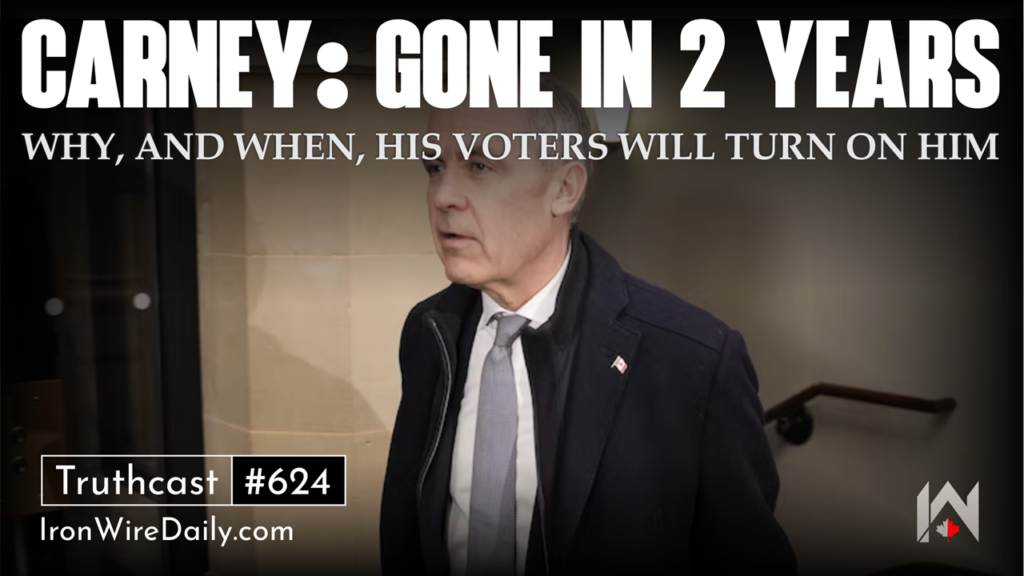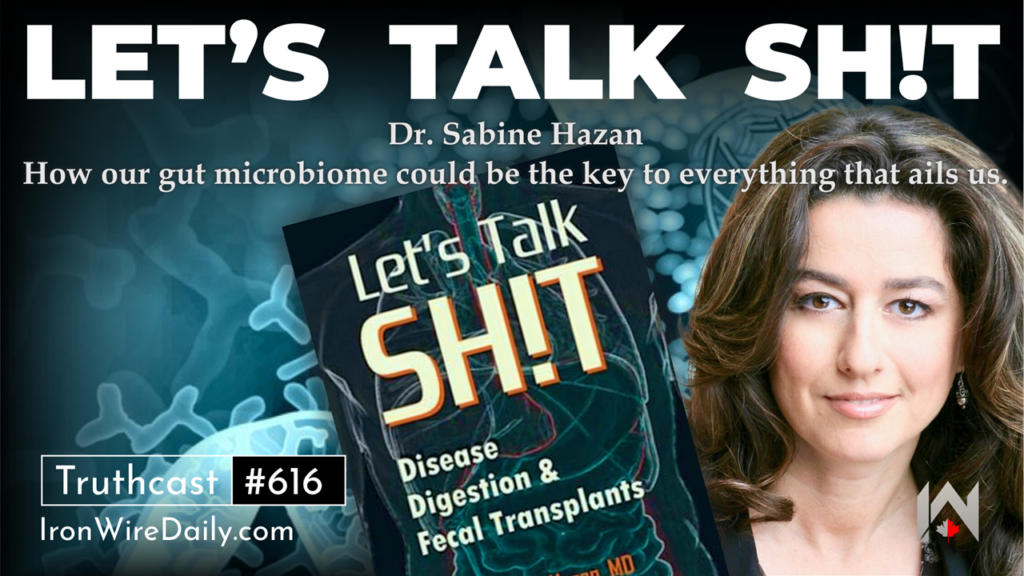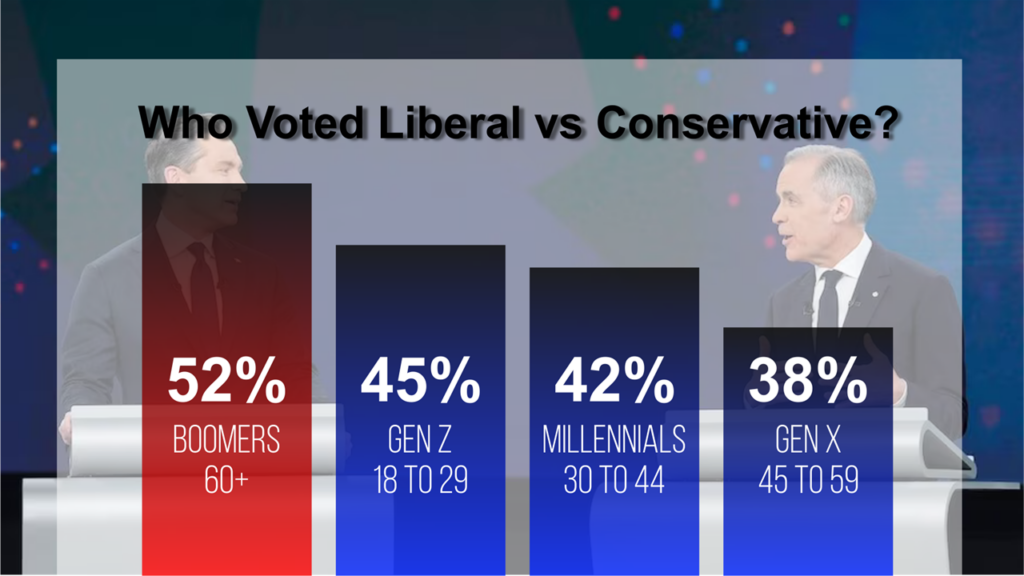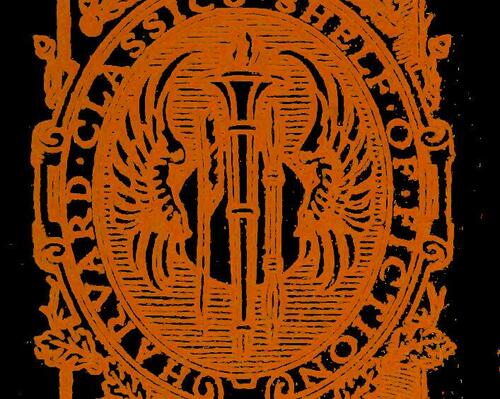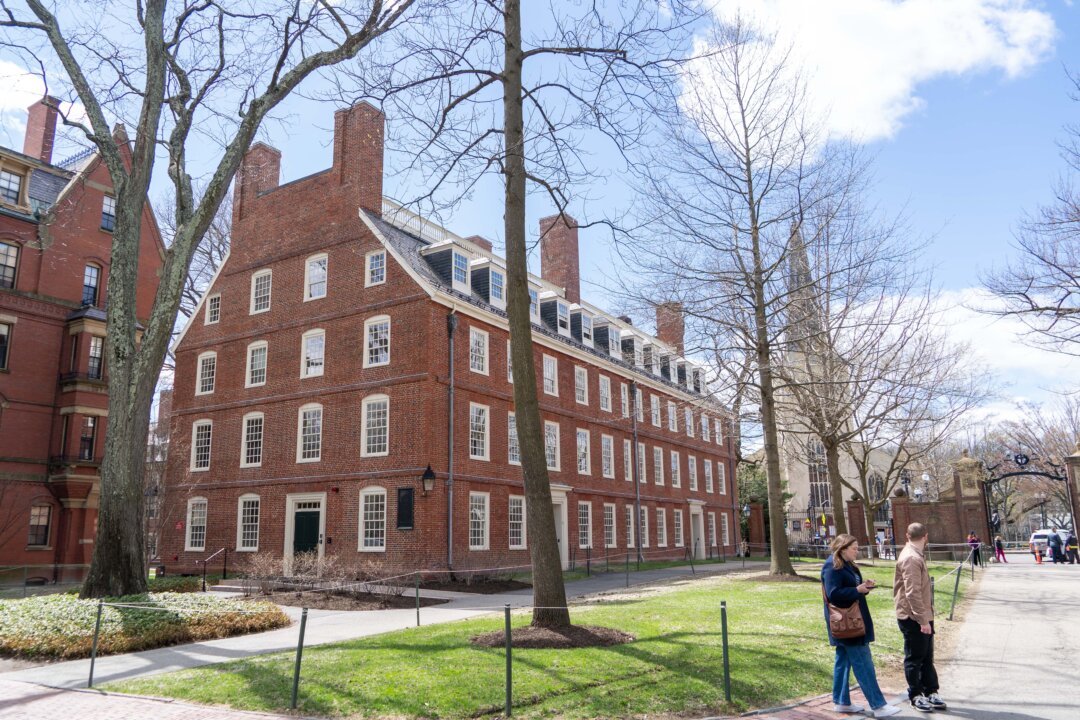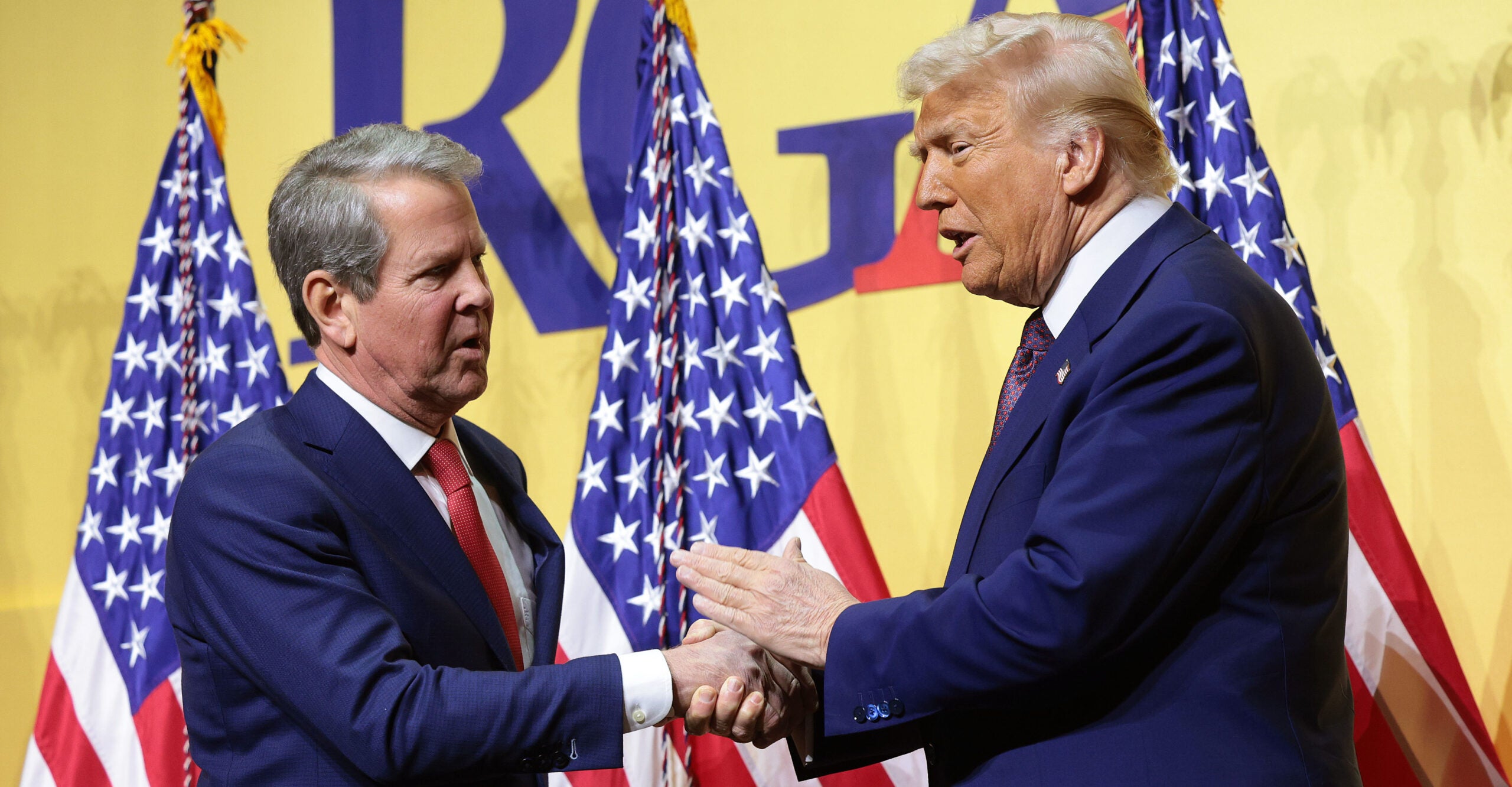Proof: A Major Scientific Paper Falsely Retracted |
Rebekah Barnett
All of you are aware by now of the scientific malfeasance that has been going on at least since the start of the Covid plandemic. Scientific papers that come to conclusions that are counter to the narrative which are published, and then subsequently retracted, often within days or at most weeks. Papers that prove damage from mRNA vaccines have been especially susceptible.
Recently Dr. Peter McCullough put me in touch with an investigative journalist from Australia, Rebekah Barnett. Working with two other people, a second investigative journalist and a Substack scientific author Rebekah spent two years uncovering the details of an especially egregious case.
An article published in 2021 in a major scientific journal that proved a link between spike proteins and cancer. After multiple freedom of information requests, Rebekah proved, in a recent substack article, the highly politically motivated retraction of the paper.
And Rebekah absolutely names names.
This, folks, is what investigative journalism should be. Dedication to the truth that simply will not stop until the truth is uncovered.
LINKS:
Rebekah’s Substack Article: https://news.rebekahbarnett.com.au/p/exclusive-report-forced-retraction
Update: https://news.rebekahbarnett.com.au/p/retraction-scandal-update
Dr. Been’s Video: https://www.youtube.com/watch?v=-SYL-iU0E9Q
Will Dove 00:00 All of you are aware by now of the scientific malfeasance that has been going on at least since the start of the COVID plandemic. Scientific papers that come to conclusions that are counter to the narrative which are published, and then subsequently retracted, often within days or at most weeks. Papers that prove damage from mRNA vaccines have been especially susceptible. Will Dove 00:26 Recently, Dr. Peter McCullough put me in touch with an investigative journalist from Australia, Rebekah Barnett. Working with two other people, a second investigative journalist and a Substack scientific author, Rebekah spent two years uncovering the details of an especially egregious case. Will Dove 00:45 An article published in 2021 in a major scientific journal that proved a link between spike proteins and cancer. After multiple freedom of information requests, Rebekah proved, in a recent Substack article, the highly politically motivated retraction of the paper. And Rebekah absolutely names names. Will Dove 01:10 This, folks, is what investigative journalism should be. Dedication to the truth that simply will not stop until the truth is uncovered. Will Dove 01:30 Rebecca, it's a pleasure to have you on the show. Rebekah Barnett 01:32 Thank you. Will Dove 01:34 So, I was put in touch with you by Dr. McCullough, because you have dug up some, it almost leaves me speechless - the depth of the corruption here. And we know this has been happening. But through your investigative efforts, and those of another journalist you've worked with, you've uncovered this one, to an extreme extent. So, I'd like you to start with just a quick summary of what this case is about, the paper, and what happened. And then I want to get into a timeline. Rebekah Barnett 02:03 Yeah, so that thing is, throughout the pandemic era, papers will get published. And then there'll be a media freakout, and then there'll be a quick retraction. And we've all known that retraction was political, but we couldn't prove it. You know, it was obvious, but there wasn't the actual proof. And so, you could send someone a paper to say, hey, look, here's some evidence, they all could rightly say, well, that's retracted, that's invalid. Well, they could rightly say that's retracted. And then they would assume that means it's invalid. What it actually meant was it was just politically unfavorable towards certain policies or certain products. Rebekah Barnett 02:46 So, in this case, this investigation went on for years. And as you point out, I didn't actually start it. So, this investigation was started by John Davidson from Broken Truth. He's an Australian, I believe living in - oh, actually, I could be wrong about that. But anyway, he's pretty sure it's based in the US at the moment, and another anonymous Substacker called Arkmedic. And those two had done the beginning work on figuring out what had gone on with this particular paper. Now, the paper itself was published in late 2021. And what it found was that the SARS-CoV-2 Spike, meaning this is a virus, wild virus or vaccine, impairs DNA damage repair, meaning that it can allow cancer formation. Rebekah Barnett 03:50 So, it’s a huge finding, and they made the mistake of writing just this one line, where they said something along the lines of - because the vaccine spike and the wild spike at the same this would apply to the vaccines and to the wild virus. After that was published, the independent media went crazy on the paper, because they obviously were like, oh my goodness, evidence that this could cause cancer or allow the formation of cancer, essentially, what they found was that the spike protein inhibits the body's ability to clean up all of the corrupted cancer-causing DNA, let's say. Rebekah Barnett 04:34 A huge, huge finding for vaccine safety and for viral effects as well. But, you know, we weren't injecting people with the virus, we were injecting people with the vaccines and saying this will ameliorate the effects of the virus. When in fact, these findings suggested the more times you inject people, the more you're going to have this risk of cancer formation. I mean, obviously, the paper couldn’t say that, it was just highlighting a mechanism that might have implications and saying more research needs to be done. Rebekah Barnett 05:14 And then, months later, the paper was retracted under really strange circumstances, and we'll get into that in the timeline if you like. But everyone knew that something was up because the retraction just didn't make sense. Like they'd said, the lead author of the paper had written in saying that he thought his work wasn't very good, and actually, it needed to be retracted. And then there was this really vague kind of reason for it. And it just didn't add up. So, several years later, we got to the bottom of that. Will Dove 05:52 Right. So, let's do that timeline. As you said, the paper was published, I believe, in October of 2021. Now, the first thing I thought was odd about this, because a lot of these papers that you get published are taken down within days, at most weeks. This one is up for good for six, seven months, before it was finally retracted. And all of this was going on behind the scenes at the time. So, Rebecca, please walk us through that timeline at this point. Rebekah Barnett 06:18 So, the reason it was out for so long, was that the journal, which is a reputable journal at the MDPI, which is the publisher and the journal’s called Viruses. They had to go through a proper process. So, if you were just looking from the outside, and you didn't know what was happening behind the scenes, what you would have seen is the papers published in October, there's a media frenzy in independent media, then all the fact checkers go crazy, saying that's not what it says, that's false, that's misleading. Rebekah Barnett 06:49 And then in, I believe it was December, around about December, there's a letter of concern published in the journal. And that letter of concern said something to the effect of the author of the paper - lead author has written in requesting a review or retraction, expressing concerns over some of the methods used. And then several months after that, there's a formal retraction published. And I'm actually just trying to find the retraction notice, to remember the reason that they gave and it was a really weak reason. Will Dove 07:35 And while you're doing that, let me point out that the two authors of the paper while they're Chinese, they were working in Sweden at the time. Rebekah Barnett 07:42 They were. Will Dove 07:43 And I believe the person you're looking for was a German scientist, Dr. Schaack? I think. Rebekah Barnett 07:49 So. Okay. So, you’re right that the two scientists were working out of Sweden, Chinese scientists working out of Sweden, two different universities and Major, hope I'm saying that right, and Stockholm University. And then we had the other characters you need to know about, Oliver Schildgen, he's the academic editor of MDPI Viruses. And then Eric Freed, he's the editor in chief, and he also a cancer scientist. I think he runs a – yeah, he's a cancer scientist at the NIH in the US. Rebekah Barnett 08:31 So, yeah, so Oliver Schildgen, the academic editor is actually the person who approved the peer review of this paper in the first place. So, he's the one who gave it tick. And then he's the one that oversaw its retraction. So, all looked very sass. Yeah. So, would you like me to get into what was happening in the background? So that's what you could see on the surface. Will Dove 08:57 Yes, yes. Rebekah Barnett 09:00 So, what I should say is then Arkmedic and John Davidson from Broken Truth, thought this looked at sass and did a bit of work, did a bit of background. So, John Davidson, for your information, emails between Eric Freed and Oliver Schildgen. So, Eric Freed based at the NIH. Obviously, there's this funding in the NIAID and NIH is tied up with royalties and funding for some of this mRNA tech. That was a question mark over how much Eric Freed had had to do with this retraction? If at all, you know, because his name was on the expression of concern and the retraction notice, so did he push for it or not? Why did Oliver Schildgen flip from approving this paper in peer review to overseeing its retraction? Was he doing something dodgy? So, these were the questions that were being asked. Will Dove 10:03 I think that we should we should drop the bomb on to Eric Freed right now and let people know. He also is a known association with the Wuhan Institute of Virology. Rebekah Barnett 10:11 Yeah, yeah, there's a photo published of him standing next to what we call that bat lady from the Wuhan Institute. So, he definitely, you know, had some… Will Dove 10:26 Not just her. There is a group photo with a whole bunch of them. It’s on your Substack. And folks, there will be a link to Rebekah’s Substack. So, you can go check all this out yourself. Rebekah Barnett 10:37 Yeah. So, and John Davidson had pulled that up. So, there was a lot of suspicion around Eric Freed and his role in it. I mean, people were even wondering, did he really – Jiang, the scientists, the lead author who asked for the retraction, did he really write in and request it? You know, was that real or was that made up? We didn't know. Because it just didn't add up. Why would you write a paper, put it through peer review, and then immediately say, actually, my paper’s a crap, can you retract it? It didn't make any sense. Will Dove 11:14 And we're talking here about Hui Jiang who was one of the two authors of the paper. And yeah, there’re comments that were made by more than one person that the retraction letter was “extremely generic”. Rebekah Barnett 11:26 Yes, so we didn't know about that yet. So, we just knew that he asked for its retraction. And then the other thing that was really weird is that he was just never heard from again. He stopped publishing, he stopped community, he sorts of just disappeared like a ghost. And then there's this other author on the paper, who was the more senior author. So sorry, I should say, the lead, I guess, it’s the more senior author, so it's rather that Hui Jiang was the more junior author, the more junior scientist. And then Dr. Ya-Fang Mei, she worked at Umeå University, and she was still publishing but she just maintained complete silence. She never took any media interviews on it. She never made any public statements about this retraction, whether she thought it should have gone ahead or not. Will Dove 12:20 But that again, that's the stuff that's on the surface, not what's behind the scenes, you're going to get to that. Rebekah Barnett 12:25 Yeah. So, John Davidson, this was interesting. He FOIA’d the NIH for these emails. And his request was denied. And they use the trade secrets, excuse, it'll reveal trade secrets, and we can't give you that info. So, then he appealed the FOIA. And these processes took six months, nine months, they just took forever to get back to him to say, completely says no. And so, he appealed, and he was refused again. Rebekah Barnett 12:58 So flat out refusal to release any emails between Eric Freed and Oliver Schildgen about this rejection. So, it’s kind of just remained shrouded in mystery. We knew that Eric Freed had something to do with Wuhan. We knew that he's high up in the NIH kind of sphere, and that there's potentially protecting the interests of the mRNA manufacturers there. And we knew that whatever went on between him and Oliver Schildgen is being blocked, like we're not allowed to see it. Will Dove 13:36 And it's not a small amount. If I was reading your post correctly, 490 pages of emails. Rebekah Barnett 13:44 Yeah, that's right. Will Dove 13:47 And they refuse to release any of it? Rebekah Barnett 13:48 Yeah, and it just makes you wonder, why do you need 490 pages of emails to, like what was being discussed there? There's obviously something about this paper that's generating a lot of discussion between these two. So, what? But whe are not allowed to know. So, then the other thing that's important, I guess to know, is that Arkmedic who writes a lot about things to do with oncology and genomics. He's obviously got a real expertise in that area. Rebekah Barnett 14:23 He had written a blog called Welcome to Gilead, which is linked in my Substack. And it's really important because he goes into why this paper mattered so much, particularly its implications for ovarian and breast cancer. So, cancer information in general, but specifically ovarian and breast cancer. So, it was a really pivotal paper and needed to be further researched. And we can get into later that actually, subsequent research has actually confirmed or built upon what Jiang and Mei found in their paper. So, they weren't wrong. Rebekah Barnett 15:04 Other highly regarded scientists have now confirmed that, yeah, this spike protein is actually a problem for suppressing the mechanisms in our body that clean up cancer cells. Will Dove 15:21 And that this was demonstrated, you referred to it in one of your posts. And I think I saw the CT scans of this individual, it was a doctor who had developed cancer, I believe. And then he got his second shot, and it just exploded. I think, it was a period of days, at most a couple of weeks. And I saw the CT scans next to each other. And the first one you're seeing a little bit, and the next one, it's through his whole body. It's one of these turbo cancers that are being referred to as it just, to the point where oncologists are going, we've never seen anything like this. Rebekah Barnett 15:58 Yeah, that's right. And his story was in the Atlantic, that was not a fringe story, that was a mainstream story. And I know about, you know, a professor, very high up in this field, has expressed concerns about these turbo cancers. Now, I know the fact checkers like to say no to conspiracy theory, but we do have plenty of scientific evidence at this point now, in the peer reviewed literature, showing why you would get a sudden appearance of cancer after either COVID or the shot. The issue, though we can get into with the shot is that you're getting perpetual spike production, and you're getting all the body… Will Dove 16:43 You’re also getting a much higher rate than you get from the infection from COVID itself. Rebekah Barnett 16:47 Yeah. And then you're getting multiple shots on top of potential infections, because obviously, it doesn't stop you from getting infection. So, you're getting exposure after exposure after exposure that you might not be getting if you're not getting the shot additionally, unfortunately. So, the implication particularly for women's cancer is really important and for informed consent people needed to be, to know about this. So, it is massive scandal. If this paper was retracted for political reasons, huge scandal, because they've just thrown all of the women in the world under the bus essentially. Rebekah Barnett 17:30 Okay, so based on all of that, I was covering a new paper by Wafik El-Deiry. And I cannot remember his co-author, but they were from Brown University. El-Deiry is a cancer scientist, renowned cancer scientist and his partner on that paper is a p53 expert. P53, typically, is the pathway that suppressed, well, it's a tumor suppressor protein. And that is the element that we were looking at that particularly suppressed by this spike protein, by the action of the spike. Its role is like the guardian of the genome. It's like constantly cleaning up all the cancer cells, and it's the p53 that suppressed by this spike somehow, you know, they don't exactly know how or why, but that's what they're observing. Rebekah Barnett 18:23 So, his paper had just come out, showing something really similar to what Jiang and Mei had found, which was this suppression of p53. And they also made the observation that this would be true for a vaccine or wild spike, is that the same? So, because I was writing that out and covering it and thinking, oh, wow, you know, someone else already found that, who was it? Oh, yeah, it was Jiang and Mei. I was writing out oh, well, it was already found by these people but it was retracted. And it just got me thinking, oh, yeah, I wonder what they would think about being vindicated on this even if that paper was retracted. Rebekah Barnett 19:06 So, I actually just phoned Dr. Mei up. She was on Sweden time, and it was late here in Perth, which meant it was her work hours, and I thought I'll just give her a call and see if she's in the office. And by just dumb luck, I got her on the phone. I’m like Dr. Mei, I'm a journalist from Australia. And I'm reading this paper from Brown University, which confirms your findings, but yours were retracted. What do you think about that? Rebekah Barnett 19:35 And she just chatted to me really openly and started telling me, well, you know, yeah, it was, I can't really say what she said in that conversation because it wasn't on the record. So, I thought, well, she didn't want to go on a record and I could understand why after all of the fact checkers freakout over her paper and her colleague Jiang was sort of disappearance from Stockholm Uni and that seems to have really impacted his career progression. So, I thought, well, if I can get some proof of the things that she's telling me, maybe I can get her to go on the record later, because she'll know that she is backed up by the evidence. So, she'd given me some information about Stockholm University's role in the retraction. And I had reason to believe that I might find some evidence in those emails. Rebekah Barnett 20:35 So, I then put in some FOIAs into Stockholm University. So that was really helpful, because up until then, we've been, you know, John Davidson had been pursuing the NIH, but now I had a new lead. So, I FOIA’d Stockholm University for all of those emails. And I had 2 leads, one was, I got a bit of a sense of the timeframe for when Jiang had requested the retraction. And I also had a sense of the fact that it might have kind of come from Stockholm University. Rebekah Barnett 21:12 So, I FOIA’d emails from them, and sure enough, we were able to find, one, Jiang’s retraction letter, which was called by Oliver Schildgen, very generic. And I was able to find out all sorts of things like the fact that the journal had initially said, what's the problem, we can't retract this without evidence of scientific misconduct. And the journal had actually really pushed back on this retraction initially. So, Oliver Schildgen, the academic editor, initially we wondered if he was kind of like one of the bad guys, but actually, he was resisting it the whole way saying, like, this doesn't make sense. Is this political? Or is this scientific? What's going on here? We can't just retract something without a scientific explanation. And he was going back to the Uni saying, we need more information, we can’t just retract it because you asked us to. Will Dove 22:10 I believe he was also backed up by an assistant editor, for the same thing. Rebekah Barnett 22:16 Yes, so we've got, I might just go in order of how I reported it. So actually, maybe most importantly, we got evidence that Dr. Mei from Umeå University, the more senior had said that she absolutely did not accept this retraction. So, this rejection went ahead without her permission. And we had that for the first time in that email trail. So, I've got that documented in this email. And then because I was able to then get that evidence, like documented, she then went on the record for me, she said that she strongly disagreed with the retraction notice, she didn't think that the scientific explanations made any sense. Rebekah Barnett 23:02 So, she didn't agree with it at all. And she never signed the retraction notice. So, it was done against her will. That was never stated in the retraction notice. They never said, this is not agreed upon by the most senior author. Then we found out that Hui Jiang, the junior author had requested retraction on the ninth of November. Now that's really significant. Rebekah Barnett 23:34 So, the paper was published in end of October, 9th of November, he requests the retraction. The reason that date is significant is that I was later able to find out that Stockholm University initiated an internal investigation into the paper on the 8th of November. Okay, so they launched an investigation based on, they told me, they got a heads up, I think it was from Umeå University, they got a heads up from somewhere, that maybe Jiang had used some resources that he shouldn't have used. And they needed to investigate it. I'm just trying to get that up, actually. Sorry. It's such a long piece. Will Dove 24:28 And that's fine. And one other detail I just want to reiterate for our viewers is Dr. Hui Jiang at the time was working for Stockholm University. Rebekah Barnett 24:37 Correct. Will Dove 24:38 Right. So, on the 8th, they initiated an investigation. And on the 9th, he puts on this extremely generic retraction notice. Rebekah Barnett 24:47 Exactly. Okay, so when I asked the head of Hui Jiang’s department, a Professor Neus Visa - why the investigation was started on the 8th of November? She said that the reason was the informal investigation was that colleagues from Umeå University brought to the attention of Professor Gekara, who is Jiang’s supervisor brought the paper to his attention. And Professor Gekara immediately realized that the research had been conducted without his knowledge and authorization. Apparently, the goal of the internal investigation was to clarify the circumstances in which the research had been carried out. Started on the 8th, then it finished on the 9th, on the 110th, sorry, so it was conducted over those three days. And on the 9th, Hui Jiang’s letter is sent and Nelson Gekara, Hui Jiang’s supervisor is Cc’d in. Rebekah Barnett 25:45 Now, Dr. Mei refutes the idea, refute that assertion that Stockholm University's resources were really significantly used in the work for this paper. She said that actually most of the funding and resources came from her lab. But at some point, during the exchange, Professor Visa, does say, oh, well, we can confirm he used reagents, and therefore didn't follow protocol of asking for permission to do that. Dr. Mei’s point is that that was so negligible. Like it's really sounds like they were just grasping for reasons. And Stockholm Uni said, oh, yeah, there were a few things used and he should have, you know, followed this protocol. And because he didn't, hold things invalid. That’s kind of seems to be… Will Dove 26:47 And as Dr. Mei pointed out, I'm going to throw a number out here. She didn't use this number, but 99% of the materials, the funding, all came from her lab, and she didn't work for Stockholm University. She worked for different university. Rebekah Barnett 27:00 Yeah, that's right. So, rewind to Hui Jiang putting in his letter saying I want a retraction. So initially, the journal, as you say, pushes back, they say, oh, this looks like a very generic letter. The Publishing Manager, Donna Virlan, if I'm saying that right, wrote back, “We have checked your retraction request and feel the information provided is insufficient”. An Assistant Editor Gloria Gao, she reiterates, “At the moment, the Committee and editors have seen no evidence, and all we hear is that there is some publicity”. So that highlighting we've got no evidence that this retraction has a scientific basis, we're just seeing there's a lot of media attention, and that seems to be what's driving this. Rebekah Barnett 27:49 In the same thread, the Academic Editor, Dr. Oliver Schildgen, who we talked about before, he said it's “rather generic”. He said, “For me it was not clear if the public pressure or scientific faults were the cause for the requests, but we have to be neutral as scientists”. So, he's saying, even if there's public pressure, we have to focus on the scientific aspect of this request. We can't just retract it because of media attention. Rebekah Barnett 28:18 Okay. Now, just to give you an idea of what kind of media attention they were dealing with, we've got a German scientist called Dr. Götz Schuck. Now he's a bit of a laugh. He’s quite funny. He was quite hysterical about this paper. So, he wrote to the journal editors and to both universities’ multiple times, and we've got records of his emails, FOIA’d email chains. He said all sorts of really full-on things like, “It is also the case that unusual times call for unusual measures and the source of scientific knowledge is instrumentalized as a source of misinformation”. So therefore, he's saying, this is such a scandal and it's being instrumentalized or weaponized as misinformation. Therefore, you should bypass ordinary measures because of unusual times. So, you got to take unusual measures and just retract the paper with no due process. Rebekah Barnett 29:14 He was genuinely arguing for that. So, he said, “You must remove the article in question as quickly as possible”. This one – “You can’t just rely on a scientific investigation of the case. Every day they hesitate enables further dissemination of misinformation related to this publication”. And we saw this a lot, right? During the pandemic, didn’t we? It doesn't matter whether it's scientifically accurate or not, it's being used by the anti vaxxers, so you've got to delete it. Will Dove 29:43 Right. If it was against the narrative, it's therefore invalid. Rebekah Barnett 29:47 Yeah. It's being weaponized. Who cares if it's accurate? Now, Dr. Oliver Schildgen was replying all the time to Dr. Shuck saying, yeah, we're following the correct procedures, don't worry, we're going through the motions. And Dr. Schuck was replying each time kind of more and more worked up saying, you can't just follow the procedures, you have to hurry up. Here's a good one, he emailed a third time alleging that the MDPI Journal had been “hacked by anti-vaccinationists” and criticizing the journal for seeking a scientific explanation for retracting without taking “social relevance” into account. Rebekah Barnett 30:32 Dr. Schildgen, sounded a little bit bitter. So, he referred Dr. Schuck to the Chief Editor who was Dr. Eric Freed. Professor Visa from Stockholm University did sort of placate Dr. Schuck. Once the train was in motion for the retraction, she did kind of, there's one case where she's notified Dr. Schuck. Don't worry, the authors or she didn't say don't worry, she just said, the authors of the article are working on their reply to the journal. She's letting him know, it's all in process, don't worry. But he's obviously giving them a really hard time, we can only imagine how many of these kinds of emails they might have been getting. Rebekah Barnett 31:19 I only FOIA’d emails going into two particular people's inboxes. We don't know how many more of these kinds of chains that were going on in the background, but he really was putting a lot of pressure on them. Now, this is where it gets dodgy. So, the journals asking for more scientific evidence of misconduct because they're saying more evidence of either scientific error or misconduct because we can't just retract it just because you said you want us to. So, the emailing saying, please give us more info. Rebekah Barnett 32:01 Now, early December, Professor Visa, who was overseeing, I believe this investigation, and therefore the process, Hui Jiang sent his letter saying, please retract my terrible paper. She finally writes to the journal she says, “I'm writing to confirm that Hui Jiang is employed as a research engineer at our department and that he carried out the published studies without approval for labs resources and reagents”, they’re trying to find a reason to say yeah, you can retract this because he didn't get permission. Will Dove 32:38 Without mentioning, of course, that researchers do side projects all the time without talking to their superiors about it. Rebekah Barnett 32:44 That's right. And Professor Gekara from memory also had a pretty sizable grant, like millions of dollars to do COVID related research. So, the lab was under a grant, but I'll just read you Dr. Mei’s direct quote. She said that her lab, “provided most chemicals, antibodies, plasmids, and the publication fee”, so any Stockholm University resources used in Jiang’s work for the study would have been minimal, even negligible. Even if Visa’s statement stood, this alone would not normally warrant a retraction. And that's one Oliver Schildgen pointed out, he said, look, I'm receiving requests and queries from the public media. So, this is urgent, but critical science is to be published. So, while I agree that resources should have been properly acknowledged, and should be subjected to a correction, my main question to all of you is, is there substantial scientific misconduct? So, he's still going back and saying, well, we can do a correction for that. But that's not an offense of the retraction. So come on, guys, like, cough it up! Have you got it? Because I'm getting a lot of pressure about this publication. We really want to resolve this. Will Dove 33:58 And these accusations most certainly do not invalidate the science. Rebekah Barnett 34:02 That's right. And he consistently makes this point. Now, in comes Eric Freed. So, the suspicion that he had something to do with it, Eric Freed comes in at that point. And he says, “Just to add one important point: retraction of a paper does not require evidence of scientific misconduct. If the data are considered to be unreliable, if honest mistakes were made, etc., such that the conclusions are not valid, the papers should be retracted.”, he wrote on the 2nd of December. Rebekah Barnett 34:37 A few days later, Professor Visa confirms that although the university “does not have proof that the data were falsified”. “The authors have revealed deviations from good research practice that should be sufficient to justify an immediate retraction of the article, as pointed out by Dr. Freed.” So, they've said, oh, it’s okay that nothing was falsified. We can still retract it because they think they didn't follow the right practices. Now jumped to Mei, and I'll get into the specifics of that. Will Dove 35:11 And I think at this point, there will be enough to remind the viewers, but Dr. Freed works for the NIH, and is known associations with the Wuhan Institute of Virology. Rebekah Barnett 35:21 Yeah, correct. And then this is one of the best quotes in the whole email read, Oliver Schildgen says, “I have to express my surprise about the entire history of this process.” So, he's just like, this is so weird. And none of it makes sense to him. But he appears to be very faithful to sticking to protocols. So, if his Chief Editor says, according to the guidelines, we can get this one through, he seems to be just committed to following those protocols out to the end, under the guidance of the Chief Editor, Eric Freed. Rebekah Barnett 35:58 So then later that month, couple of weeks later, the expression of concern written by Freed and Schildgen was published in the journal. Now that expression of concern simply said, I'll read it to you, “We are issuing this expression of concern in consultation with the publisher to fulfil their reporting obligation”. “One of the authors has raised concerns regarding the methodology employed in the study, the conclusions drawn, and the insufficient consideration of laboratory staff and resources. In order to keep the highest standards and in-depth investigation has been initiated”, so on and so forth. This article will be updated. And that was when everyone who was on that outside looking was like, one of the authors has requested? It’s like, it's just so weird. And then on the 10th of May, the paper was formally retracted with a notice. And we can get into the specifics of that notice if we've got time. Will Dove 36:58 We absolutely do. And I think we should. Because there's some very odd things about the notice itself. Rebekah Barnett 37:04 Yeah. So now, I think it’d be good to rewind to Hui Jiang’s retraction request, because I was finally able to get a copy of it. I had to - it was actually interesting, I did a couple of FOIA’s to Stockholm Uni that kind of through each release of documents I was able to find out, okay, he sent the letter on that day, it came in from there, it's going to be Cc’d to her, I’m able to get enough information to pinpoint. With FOIAs, we've got to be so specific about what you're asking for. And if you don't, if the documents are not captured in your specific request, they will just not give it to you. So, you need to really pinpoint it. Rebekah Barnett 37:50 And I did on my final FOIA request, but they just didn't supply it. They said, they gave me some dumb excuse. I can't even remember what the excuse was, but I went back to them, and I said, yeah, but that excuse doesn't make sense. And I just want the letter and I can tell you exactly what day it was sent and from where so can you please just hand it over? And on my, you know, third request, they handed it over, but it appeared that they didn't want to because they kind of bluffed around and said, oh, it wasn't from there. And I was like, I don't care where it's from. I just want that letter on that day. You know, so finally I got it. Rebekah Barnett 38:32 Now, here's what Hui Jiang said, were their reasons for wanting to retract the paper. One, “I'm a research engineer belong to Dr. Nelson Gekara group at Stockholm Uni. About this publication, I privately collaborated with Dr. Ya-Fang Mei from made from Umeå University and did not inform my supervisor.” Okay, well, I got our committee who's more than qualified. He's an anonymous Substacker, and I can't reveal his identity. But I can guarantee you he's more than qualified to comment on this. Rebekah Barnett 39:08 So, I'm just going to, I got him to, he's published a lot academically and also works in practice. So, I got him to commentate his response to these reasons. So, number one, “Failure to inform the supervisor of a research protocol is not a reason for retraction.” It's just not, it's maybe a correction at best. So, his second reason, “Many of the experiments in this publication were done using Gekara lab’s resources or reagents without authorization.” Rebekah Barnett 39:46 Our committee points out, the funding for these experiments and most of the lab reagents were provided by Dr. Mei at Umeå, we know about it because she stated it. Gekara’s lab was already adequately funded for DNA signaling work from a Swedish government grant, which I referred to earlier. So, either way it's covered. His third reason, “The data in this publication haven't been conducted to the highest scientific standard and are not properly interpreted. Well, Arkmedic says, it's ridiculous that the first author would say that his/her own work was not conducted to the highest standard. The interpretation of the results as described in the paper was correct. Interpretation beyond what's described in the paper is a reason for retraction.” Rebekah Barnett 40:33 So, this is like a sticking point here where it's obvious that the interpretation of the results was correct, because multiple papers have since been published that, you know, support the interpretation by Jiang and Mei, not least the Brown University study that I mentioned, which is linked in my Substack, and you can put it in your notes. Will Dove 40:58 And some of those papers were published during the seven months that this was going on. Rebekah Barnett 41:03 Right, okay. I'm not sure, yeah, I'll take your word for that. Will Dove 41:08 I'm aware of some papers that were now all retracted, but just the same, there were other papers that were published at that time, that basically came to the same conclusions. Rebekah Barnett 41:21 Right. So, Arkmedic’s point, and this was Oliver Schildgen’s point as well is the interpretation of the results in the public sphere is, you know, by media or by Dr. Shuck’s anti-vaccinationist. That's not a reason to retract valid science. So, everyone knows that and agrees with that, except perhaps people comes from Uni, but I can't make that accusation. That's just speculation. He said, “We have not properly acknowledged.” Arkmedic said, “Who was not properly acknowledged? The funding of the study was properly documented. Lack of acknowledgement of someone is not a reason for a retraction.” You could add a correction but you don't retract the paper. Rebekah Barnett 42:09 Some phrases in the text are identical to Nelson Gekara’s publications who John said, okay, well, he seems to be referring here to a particular assay that was used, which had previously been described in a prior paper by Jiang and Gekara. So, Hui Jiang had worked with his supervisor on that. Re-use of protocol descriptions is not plagiarism. It's you describing the protocol that you've previously published. So again, ridiculous, and again, not a reason for a retraction. Rebekah Barnett 42:44 And then his final reason was, the statements or descriptions in his publication based on artificial cells and systems have misled readers and have bad effects. Well, Arkmedic says, “The paper clearly described the use of the cells which were also the cell lines used by Pfizer-BioNtech in their preclinical studies for the mRNA vaccine. So, it was the appropriate cell line to use. It's not like they just went off and made it up and use some relevant cell line. They used the appropriate relevant cell line. Rebekah Barnett 43:24 So external, again, external misinterpretations out in the blogosphere are not a reason to retract a scientific paper. And so, what's interesting to me as someone who's not a scientist, but is very interested in like narrative is that the final published retraction notice doesn't mention any of the above listed concern, or hardly any of. So, conspicuously Jiang claim that he plagiarized just disappeared. Like plagiarism is super serious accusation, and he just accused himself of it. Rebekah Barnett 44:02 But it's not in the final retraction notice, which indicate that there was no plagiarism found. The final retraction notice, yeah, so it gives the strong impression that the author of the letter, whether Jiang wrote it, or someone else wrote it, and he was just asked to sign it, we don't know - was just clutching at straws, just trying to manufacture reasons to achieve the predetermined goal of rejecting the paper. I mean, it just sounds completely made up and ridiculous when you go line by line. Will Dove 44:40 So, Rebecca, I just want to summarize this. As where we started out, you started talking about the fact that, sure, there's been a lot of papers have been retracted, in this particular case, you and John Davidson and Arkmedic. You've tracked down the details of this. And what we have here is a very clear case of a politically motivated retraction. No scientific basis for it. Will Dove 45:02 We've got Dr. Jiang, who was clearly pressured into retracting the paper. We've got the editor of the paper who originally approved it, fighting like hell to keep it because there's nothing wrong with it scientifically. We've got the involvement of Dr. Eric Freed, who we know is involved with the NIH and the Wuhan Institute of Virology, who now steps in as the head editor, and approves all of this. And this is a seven-month process. But this is all going on. Rebekah Barnett 45:35 Yeah, and you know, the funny thing is Dr. Mei, her goal was actually to develop the safer vaccine, better vaccine, rather. So, the irony of all of this is that she's not anti-vaxx, she was actually completely pro-vaxx. She just wanted better vaxx. Will Dove 45:56 And it’s not going to damage people's ability to find out the answer. Rebekah Barnett 46:00 Correct. Yeah. So, her orientation in all of this was, well, we should always be trying to improve. We should be trying to improve vaccines and make them better and better and better. Why would we not publish sign that helps you make them better. And her view in all of this was that if anyone had a problem with what had been published, they should have published a response, which, you know, up until recently was how it was done. It's just in this pandemic, we get a lot of the hysterical reasoning that Dr. Schuck used, which, it's along the lines of – oh, but it's an emergency, so we can't follow protocol. Rebekah Barnett 46:49 I'm going to go to check out all the scientific articles or process, we're going to check out the process because, we can't afford to because the anti vaxxers might weaponize it. Now, I do want to say that, so I contacted Dr. Shuck, he never replied. Stockholm University did reply, to their credit, they answered my question. So, when I asked, “When was this investigation started?” They did reply to the 10th of November. And we've got Jiang’s letter coming on the 9th. Rebekah Barnett 47:23 They, yeah, I also want to point out, there was a viral YouTube video by Dr. Been on this paper. And he particularly explained the implications for cancer. It's a really great watch. Hopefully, you can link it in your comments. Now, that video that's had like over a million views, that video was posted on the 5th of November. So, I think that we can speculate that that had a lot to do with the timing of the investigation. Probably wasn't the only thing because there were a lot of articles as well, when this paper came out really close to a huge stir and rightly so. Rebekah Barnett 48:06 I asked the university about reads rolling the retraction. But they just said no, nothing to do with that. We’re just all about truth and science and you know. So, sure, that's what they're going to, you know, that could be true with I don't know. Oliver Schildgen was interesting. Rebekah Barnett 48:26 So, he seems to have really sincerely been stuck to the protocol. But really been skeptical about all of this the whole time. He said to me, the retraction was asked by one of the authors and as it's the journals policy that in those cases, the editors have to publish a letter of concern. If the journals policy in those cases the edits have to publish a letter of concern, and the paper is retracted. So, in my function as an editor, I followed all of the code and editorial guidelines. Rebekah Barnett 48:59 So, he's definitely a process guy, it seems. He can't give any further information, he said, because this would be scientific and legal misconduct. But he did say, and I think this is really telling, in my opinion, the scientific self-clearance process, which is what Dr. Mei was talking about, where you just publish responses to each other's work. And a proper discussion, by a rebuttal letter, or an accompanying contra paper would have been sufficient too. So, he's saying like, you could have handled this by just publishing a rebuttal. I didn't really think that the retraction was needed. Will Dove 49:45 And I think, one of the most powerful statements and you publish this is from Dr. Kevin McKernan. And for my viewers who are familiar with that or not, Dr. McKernan was the scientist who found the DNA in the vials, the geneticist and may I read this because I just, wow - the retraction argument given was an absurd question of the use of green fluorescent protein in biological assays to retract this paper over that assay will make 1000 other papers fail. It was clearly political to those of us watching closely. But we didn't have the proof until Rebekah Barnett FOIA’d their ass and revealed what's really going on. Rebekah Barnett 50:27 Yeah. Will Dove 50:28 Very good work, Rebecca. It's. And this is the point where I have to get in it a little bit, we're going to talk about some of the other things that you've reported on, some of the other scientific malfeasance that has been going on out there. But I want to ask this question first, I want your opinion on this. It almost seems pointless for them to have done this, because it took them so very long to get this paper retracted. And I think it was something half a million downloads on it in that interim. Will Dove 50:59 And of course, we know what's behind it, we've got the NIH is heavily funded by Big Pharma, so as the Wuhan Institute of Virology. They're doing everything they can to hide the harms of the shots, and they're well aware of them. And this has been obvious ever since we got off with first Pfizer papers. They know. But they want to keep this game going for as long as possible. But sooner or later, they're going to have to pay for this. I'm not sure if you're aware of this in Australia, but right now, there are five US states that have said they're going to file lawsuits against Pfizer. Rebekah Barnett 51:32 Yeah, I am aware. Will Dove 51:36 Pfizer, Moderna, I think it's inevitable, in my opinion, at least, that eventually, they're going to get sued out of existence for the harms that have been done. Rebekah Barnett 51:44 Because it seems to me that the Big Pharma business model is broad is built into the business models. So, it seems to me that it's in the budget to pay billion-dollar fines periodically. And that that's just on the ledge up. Will Dove 52:02 And I agree with you. Rebekah Barnett 52:04 Until executives get jail time, I don't see them being sued out of existence. I see them, you know, the Purdue family, from what I've read with the fallout of the oxycontin scandal is that the family just deposited wealth on various offshore accounts and firewalled it. And yeah, they get some bad reputation, and yeah, the company took a hit, but that's fine. Will Dove 52:39 And that's exactly what I'm getting to. That's exactly where I'm going with this. I appreciate your opinion, not mine as I think it could actually happen because, sure, they've got the budget for a billion-dollar lawsuit here and a billion-dollar lawsuit there. But once these governments state, federal, whatever, start doing this, others are going to jump on board, even if they don't care about the harms that have been caused, they're going to see a big paycheck. And they're all going to go after them. And it's going to be like a group of piranhas. Will Dove 53:11 So, but here's my point, and I think you just made it for me. The people who own these companies don't care, because they're moving all their money off in places where it can't be touched. When the lawsuits start, when the criminal charges start happening, well, they'll just go to some country where they can't be extradited and live with their billions of ill-gotten gains. And they don't care how many people they harmed, how many people they've killed. Will Dove 53:42 And that's what it's all about. That's it. They know that sooner or later, the truth is going to come out. But they don't care because they'll have their billions, and they'll be gone where we can't touch them. Rebekah Barnett 53:54 Well, yeah, and also, the truth comes out at such a slow pace and so incrementally that I think a lot of people are able to just kind of stay asleep to it. Like if you think about thalidomide, for example, we had in Australia an apology given just like it was either earlier this year or late last year, I can't remember. But decades after the crash. I don't think anyone would be able to tell you who made thalidomide or who's responsible for that, like it's so far in history that by the time the countability happens, it's so far removed from the site of harm or the initiation of the harm that people just kind of forget. Rebekah Barnett 54:42 Like I mean, I think everyone knows there were no WMDs and that a lot of the wars that are initiated by the U.S. have no basis. You know, everyone kind of knows it. But is anything going to change or does that mean that any reckoning is going to happen? Well, not really at the moment because it's also incrementally kind of parceled out in the - the narratives just adjusted, so incrementally over time that it just allows people to just adjust, and just adjust, and they never really get that full, oh, my goodness, kind of realization. Rebekah Barnett 55:26 I don't mean to be a downer. I mean, obviously, some people do get it and see it. And that's why we're having this discussion. That does seem to be increasingly happening with the COVID stuff, because I just think they went too hard, too quickly. So that encourages me. But I do think that the, the narrative control is they're so good at it. I did a Sbstack on this not that long ago, just last week, I think it was, we had a big expose on TV, and it was about COVID policies. Rebekah Barnett 56:01 Now when I say expose, it was mainstream, and it was 53 minutes, what can you really cover interrupted for 53 minutes, but what was significant is that a full quarter of the airtime was dedicated to vaccine injury, which I think is indicative of the experience on the ground, which is that like, it is such a big part of the COVID experience, particularly in Australia, where we were mandated to oblivion. 95% of the Australian adults, over 95%, had the double dose, you know, according to official records, had the double dose protocol. So, we want to know most facts countries in the world. So, we've also got a lot of community anger, because we were boasting to it and a lot of people are injured, are - what do you call it? What's the thing with the compensation? Our compensation scheme is not that good, better than U.S., mind you. But that's not saying anything. Rebekah Barnett 56:59 And, you know, people are being gaslighted still by doctors, and there's been really no government acknowledgement of the injuries in the community. So, there's a lot of angry people. And that was aired on mainstream TV, which was significant. But to me, looking at it from a narrative point of view, I was like, well, it's a significant narrative shift. But I think the way that it's done is that the narrative shifts, and I'm not saying like consciously going when you shift the narrative, but I'm just saying, like, over time, the way it seems to work is that the narrative will shift to incorporate enough of reality, to kind of absorb the anger and absorb what people can see. But not enough to then say, oh, we were wrong, and it was all a lie, dah, dah, dah. It now just shifted enough that people can absorb some of this undeniable reality, but not so much that people snap awake? Does that make sense? Will Dove 58:07 And I agree with you completely. And we're in one place, I was going with my own views on what I think may very well happen to big companies like Pfizer and Moderna. And if I'm right, and they do get sued out of existence, new Big Pharma companies will pop up. And I bet if you go looking for the people who founded those companies, it'll be the same people who own Pfizer and Moderna. Because they took their billions and they - well, I know how to run this racket. So, we'll just do it again, under a different name. Rebekah Barnett 58:38 Yeah, I mean, I hope I'm wrong. I hope that there is a massive reckoning, that it is the start of a new era. I read a subset this morning, that it was actually about the U.K. election, and it said something like, oh, unnamed mob bosses stepped in to run the syndicate. I just, I like that framing. I mean, Whitney Webb talks about it, too. You got to - people need to understand how power works. And you know, these syndicates, they run like the mob. So, it's going to take more than a couple of lawsuits. Sure. But I do think it would be very exciting if half the states in the U.S. were to launch a lawsuit. Rebekah Barnett 59:23 Unfortunately, it seems to be so partisan in the U.S. As I told you before, I'm reformed woke and as someone coming from that orientation, just made that the people, that it's only coming from one side of politics, this desire to hold Big Pharma accountable. Like it used to be the left that wanted to hold Big Pharma and big corporations accountable, it’s just what happened. Will Dove 59:54 But in my own personal opinion, and I seldom inject my own personal opinions into your views but we're both journalists, so I think I can get away with it this time. I do think there's a shift coming. But the shift is not going to be at the oppressions, it's going to be on the ground level with people finally coming to understand that governments mainstream media do not have their best interests at heart, will stop listening to them, and I would hope, and I'm sorry, folks, if this sounds like shilling, but I would hope that people will come to understand that if you're not paying for your news, someone else is paying for it. Will Dove 1:00:35 And the people need to be supporting independent media, your Substack, my show, because we're the only ones who are working for our viewers, our readers. We work for them, not anybody else. And our job was to bring them the truth. And if you're getting your news from some source that you're not paying, somebody else is paying them. And that somebody else probably has an agenda. Rebekah Barnett 1:00:59 Yeah, particularly a big, I'm not, I was going to say in the U.S., you see that clip of like, “brought to you by Pfizer”. And the comment on that is what do you think they're paying for? They're not paying for an ad to sell Pfizer products to people, they're paying for the editors to decide not to run that story, that would be quite critical. But you know, that's not just in the U.S. And when we look at it, it’s not just Pfizer, either it's the or the Bill and Melinda Gates Foundation, donations to media, what are they buying? What do you think they're buying? Will Dove 1:01:39 So, if I can grab a few more minutes of your time, Rebecca, this is hardly the only story you've uncovered of I'm going to use this term again, scientific malfeasance. Could you give us a few of the highlights of other ones that you've uncovered? Rebekah Barnett 1:01:53 Well, this is not so much scientific, but rather, we've got a bit of a scandal in Australia at the moment over a judge who dismissed a case challenging the COVID vaccines, and then immediately after, it came to light that this judge in the federal court, her name’s Justice Helen Rofe, had previously worked for Pfizer, provided counsel for Pfizer on at least five occasions, and never declared it. So, you know, in I don't know what it's like over where you are. But in Australia, you're supposed to, if there's the possibility of an appearance of bias, and judges have to disclose it, they're supposed to say, oh, look, I actually worked for this company that I'm about to, you know, that's involved in his case that I'm supposed to judge. So maybe I shouldn't be appointed to this case, because I worked for Pfizer privately multiple times. But she didn't do that. Rebekah Barnett 1:02:59 So, we have a string of cases here in Australia that have challenged the COVID vaccines where they've been dismissed. They're not being heard in the courts. They're being dismissed based on technicalities. So particularly standing is one that they like to use. I know that happened a bit in the U.S. as well, well, they'll say, oh, you just don't have standing to bring this, therefore you can't win it. So, we just won't let you bring it at all. And that is what happened in this particular case. What was interesting about this case is that it's alleging that the mRNA vaccines contain GMOs. Rebekah Barnett 1:03:37 In Australia, if you want to bring a GMO product to market, you have to get a license from the Office of the Gene Technology Regulator. Neither Pfizer nor Moderna did that for their COVID vaccine. So, this case alleges while they're being illegally dealt with in the country dealt with this, like the official term, distributed, sold, injected, whatever. And because they contain GMOs, now, the two GMOs, according to this case, as you know, argument, the modified RNA and the plasmid DNA contamination. So, if that were to get to a court and actually be presented in evidence and heard, even if they didn't win, it would really be, you could say it would be in Pfizer and Moderna’s interest to have the record presented as evidence in the board where the media could attend. Rebekah Barnett 1:04:37 And it would, you know, have to be passed and decided on by a judge. So, this judge just dismissed it outright and said that the doctor and pharmacist bringing the case didn't have standing. So, the lawyers in that case, have lodged upon and complain and said, well, someone should have told us that she had got tied so before, but it doesn't look like the federal court wants to investigate that. They're not bad at taking any action on it as yet. Will Dove 1:05:09 Yeah, a favorite here in Canada is declared the case moot, as happened in the travel ban case brought in part by the honorable Brian Peckford. He served as the third premier of Newfoundland. He's now 80 years old, but he is very much in possession of his faculties. I know Brian quite well. He's the sole surviving author of our Charter of Rights and Freedoms. Rebekah Barnett 1:05:29 Oh, okay, I've heard about him. Yeah. Will Dove 1:05:32 Yes. And he was, brought this case against the federal government, for the violations of our Charter rights under the travel ban, that it was discriminatory that those of us who hadn't taken a vaccine could not get on an airplane in our own country. And the court simply said, well, it's moot because the travel bans aren't in place anymore. Which is the same thing as saying, we're going to declare this assault case moot, because the assault is no longer going on. Rebekah Barnett 1:05:56 Yeah, we had one like that in Australia. I can't recall the details of it. But I'm aware of one or two challenges where there were vaccine mandate challenges. And then it was like, oh, well, it's not in effect anymore, so it's irrelevant. Yeah. Will Dove 1:06:13 Yes. Rebecca, thank you so much for your time today. And for this excellent investigative journalism you've done, for bringing this to light. Please keep up the good work. Rebekah Barnett 1:06:23 Thank you.

